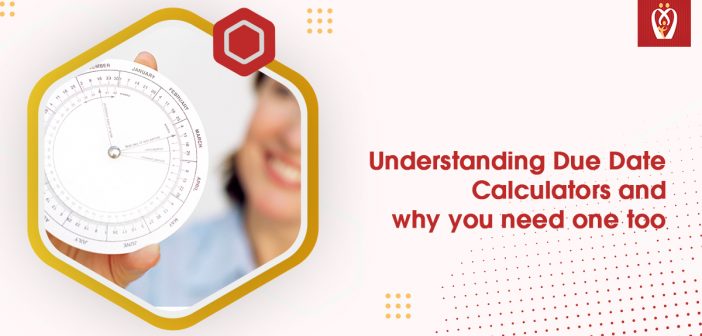You can get an idea of the due date by using a due date calculator. Knowing your due date will give you a rough estimate of when your kid will be born. Remember that your due date is just an estimate. Only a small percentage of babies are delivered on the day they were supposed to be.
For a variety of reasons, knowing your due date is critical. It aids you in making final preparations for the birth of your child. Your midwife can use this information to keep tabs on both your and your child’s health.
There are a handful of ways you can figure out when you’re due at home. These techniques, however, aren’t always reliable. Depending on the size of your baby on ultrasound and the date of your last period, your provider may give you a different date of birth.
What is a due date?
For babies, it takes roughly 38 weeks in the womb for them to mature to their full potential. Based on this 38-week gestation period, your due date is the day you are scheduled to give birth.
GPs define a full-term pregnancy as occurring between 37 and 42 weeks of gestation. Many factors influence when you go into labour and when your baby is delivered, so it’s impossible to predict exactly when yours will arrive.
How can I figure out when I’m due?
The following formula can be used to figure out when you’ll be having your baby:
You last period
If you remember the first day of your last menstrual period before becoming pregnant, you can figure out when your baby is due. For your due date, you must have had your last period by the time you are due.
A strong reason to utilise this technique is that many women can recall the day they first started their period. However, if you have an irregular menstrual cycle or are on birth control, this may not always be the case.
The day you got pregnant
You can determine the due date of your child if you know exactly when you became pregnant. From the moment you found out you were expecting a child, start counting down the weeks until that time arrives. On that day, you will be officially due.
Only if you know exactly when you were pregnant may you use this strategy. If you don’t know when you ovulated, you won’t be able to pinpoint exactly when you became pregnant. Ovulation occurs when an egg is released from your ovaries (the reproductive organs). 14 days after the start of the menstrual cycle is the average time for women to ovulate. Tracking your ovulation can be done by:
- At the moment when you think you may be ovulating, take a reading of your basal body temperature.
- Following the appearance of cervical mucous and the occurrence of ovulation pain.
- The use of an ovulation-predictor kit. When you’re ovulating, you can use one of these kits to check your urine.
Even if you know your ovulation date, it can be difficult to determine when you became pregnant. For up to five days, sperm can survive in your fallopian tubes (the tubes that transport eggs to your uterus). Around the time you ovulate, you can only get pregnant for 12 to 24 hours. It’s possible that you become pregnant if you ovulate shortly after having sex.
How accurate is a due date calculator
Calculating the due date is merely a guess. Your developing foetus will be examined by your GP to determine your due date.
An ultrasound will be performed by your GP in order to obtain a more precise estimate of when your baby will be delivered. Your GP will take measurements of your infant using ultrasound technology. These measurements assist them in determining your baby’s gestational age and determining your expected due date.
What’s the point of figuring out when I’m due?
As a new parent, knowing your due date helps you plan for the arrival of your child. As soon as the baby is born, you’ll have plenty of time to get everything you’ll need, such as a car seat. Counting down the days until the arrival of a new member of the family can help older children adjust to the arrival of a new member of the family.
Additionally, knowing when you’re due enables you to receive the proper prenatal care that you need. In addition to the recommended prenatal vitamins, you should also schedule prenatal screenings at specific intervals throughout your pregnancy. Your GP or midwife will also monitor your baby’s growth and development during your pregnancy.
The Nurturey Pink Book offers a variety of tools, including a due date calculator, to help you determine your due date. Other tools include trustworthy NHS advises, kick ounter, prenatal test schedules, timelines, and so much more!




